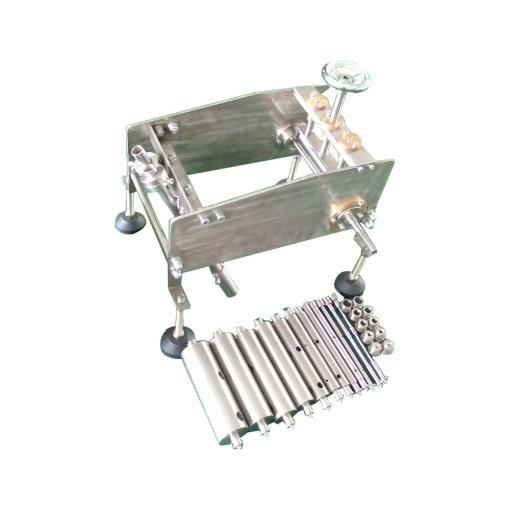Testing Instruments for Evaluating Conductor Resistance in Electrical Systems
Conductor Resistance Test Instruments An Overview
Conductor resistance testing is a critical procedure in electrical engineering that ensures the efficient operation of electrical systems. The resistance of conductors can significantly impact the performance and safety of an electrical installation. Thus, specialized instruments are designed to measure the resistance of conductive materials accurately. Understanding these instruments is essential for professionals in the industry to maintain the reliability and efficiency of electrical systems.
Conductor resistance test instruments are used to assess the resistive properties of various conductive materials, including wires, cables, and complete electrical circuits. These tests are crucial to identify potential issues such as poor connections, faulty conductors, or degraded materials that could lead to overheating, energy loss, or even electrical failures.
One of the most common instruments used for this purpose is the Micro-ohmmeter, which provides high accuracy for measuring very low resistance values. It is particularly useful for testing power cables, transformers, and other critical components where low resistance is essential for optimal performance. The Micro-ohmmeter applies a known current through the conductor and measures the resulting voltage drop, allowing the calculation of resistance using Ohm's law.
Another important tool is the four-wire measurement technique. This method minimizes the impact of lead resistance and contact resistance on the measurements, ensuring higher accuracy. In this setup, separate pairs of leads are used for supplying current to the conductor and measuring the voltage, effectively eliminating errors that could arise from the resistance of the test leads themselves.
conductor resistance test instrument

Portability is a significant consideration in the design of conductor resistance test instruments. Many modern testers are lightweight, battery-operated devices that can be easily transported to various job sites. This portability allows for rapid testing and diagnostics without the need for extensive setup or downtime, making them invaluable for field technicians.
Additionally, modern conductor resistance testers often come equipped with advanced features such as data logging, Bluetooth connectivity, and user-friendly interfaces. Data logging capabilities allow technicians to record measurements over time, facilitating trend analysis and helping to predict potential failures. Bluetooth connectivity enables the sharing of test results in real-time with team members or integrative systems, enhancing collaboration and decision-making processes.
Compliance with relevant industry standards is another critical aspect of these instruments. Many electrical applications require that conductors meet specific resistance criteria as part of regulatory compliance. Therefore, using calibrated and certified test instruments ensures that tests meet the necessary guidelines and provide valid results.
In conclusion, conductor resistance test instruments play a vital role in the maintenance and assessment of electrical systems. From portable Micro-ohmmeters to advanced four-wire measurement techniques, these tools help professionals ensure that conductors operate within safe resistance levels. As technology evolves, the integration of features such as data logging and wireless communication enhances the functionality and efficiency of these instruments. Investing in quality testing equipment not only improves the reliability of electrical installations but also contributes to safer and more efficient electrical systems in various applications. Ultimately, the meticulous testing of conductor resistance is crucial for preventing failures and maintaining the integrity of electrical infrastructure.
-
Why the Conductor Resistance Constant Temperature Measurement Machine Redefines Precision
NewsJun.20,2025
-
Reliable Testing Starts Here: Why the High Insulation Resistance Measuring Instrument Is a Must-Have
NewsJun.20,2025
-
Flexible Cable Flexing Test Equipment: The Precision Standard for Cable Durability and Performance Testing
NewsJun.20,2025
-
Digital Measurement Projector: Precision Visualization for Modern Manufacturing
NewsJun.20,2025
-
Computer Control Electronic Tensile Tester: Precision and Power for the Modern Metal Industry
NewsJun.20,2025
-
Cable Spark Tester: Your Ultimate Insulation Assurance for Wire and Cable Testing
NewsJun.20,2025
 Copyright © 2025 Hebei Fangyuan Instrument & Equipment Co.,Ltd. All Rights Reserved. Sitemap | Privacy Policy
Copyright © 2025 Hebei Fangyuan Instrument & Equipment Co.,Ltd. All Rights Reserved. Sitemap | Privacy Policy
